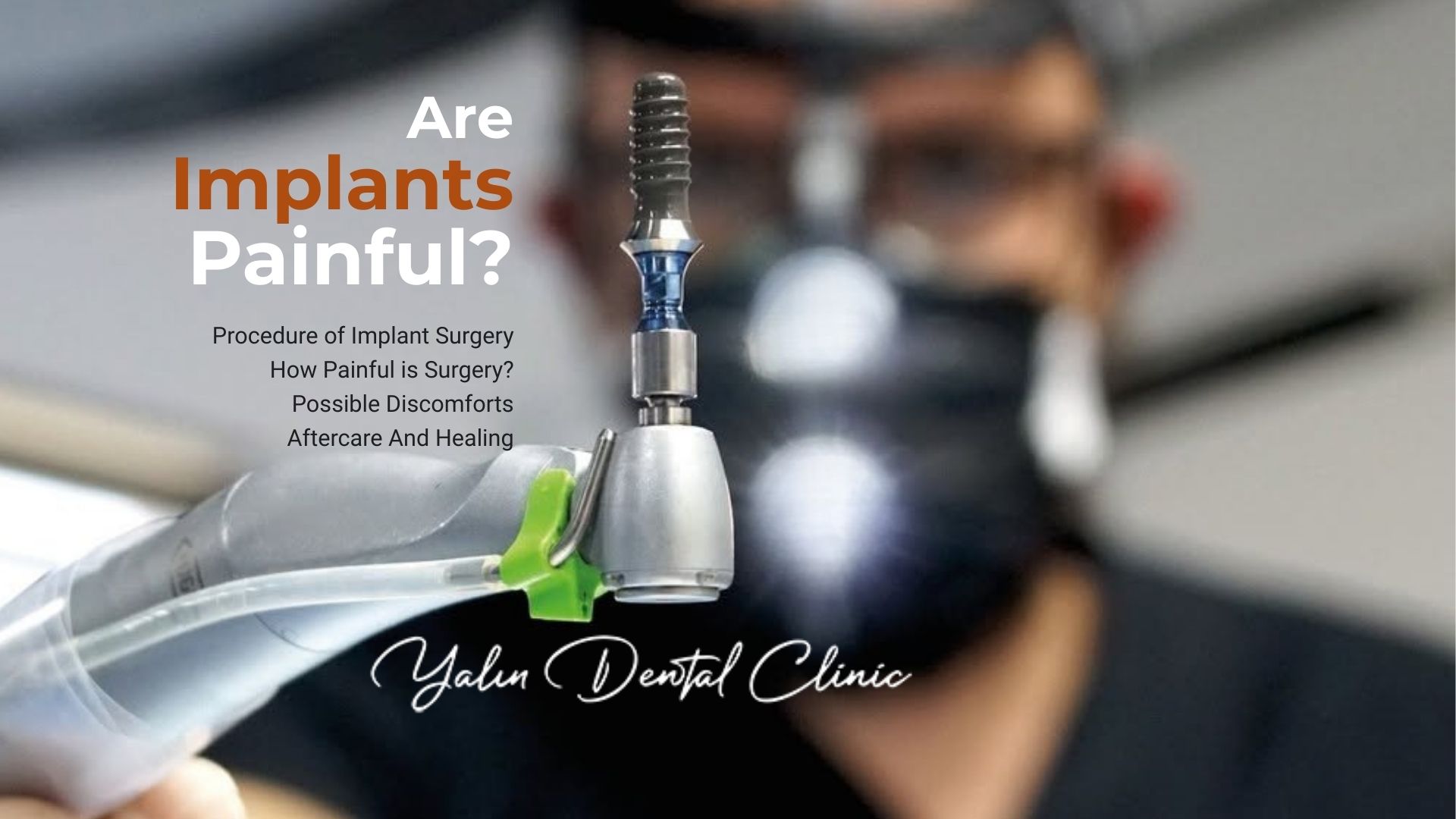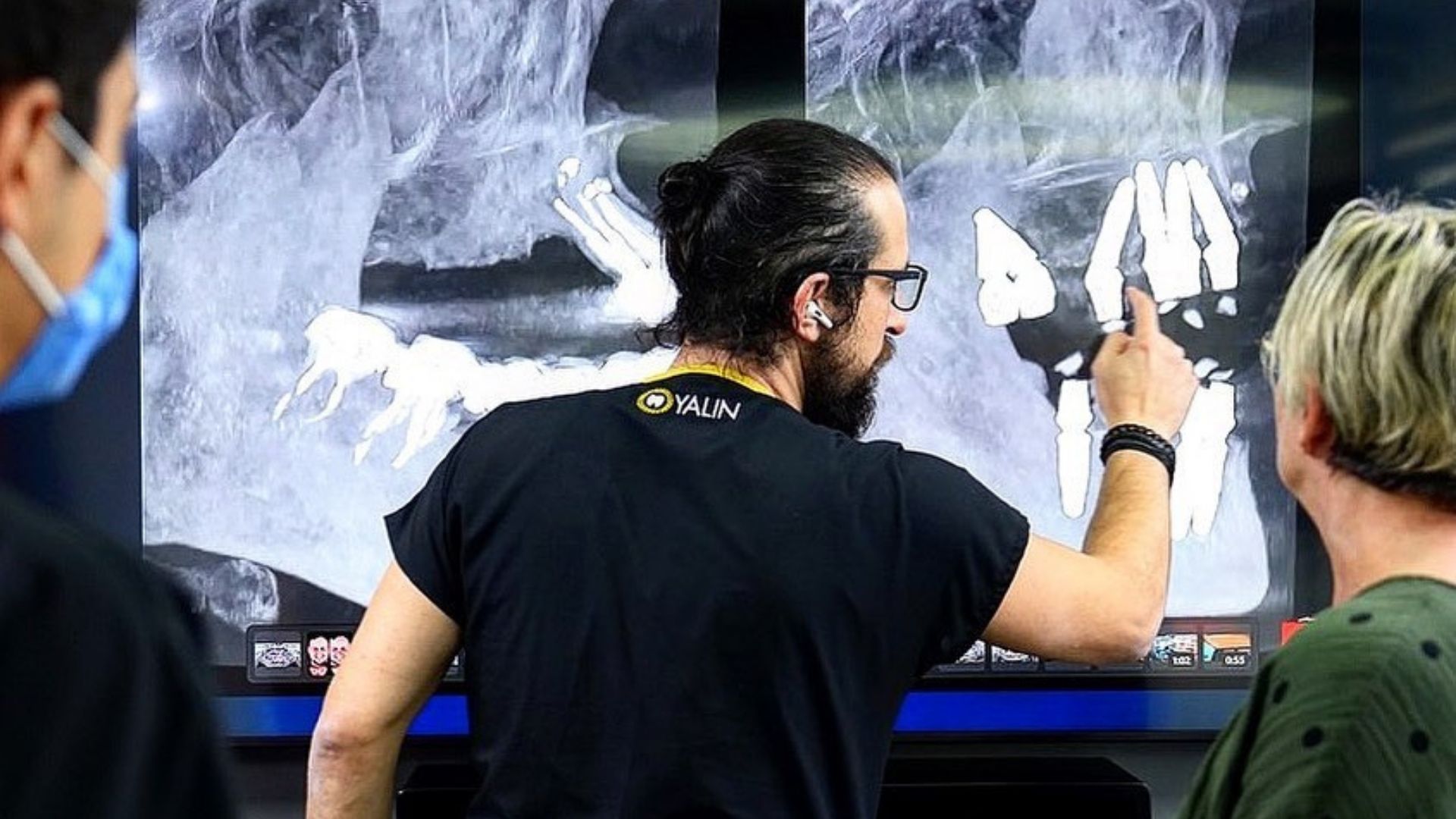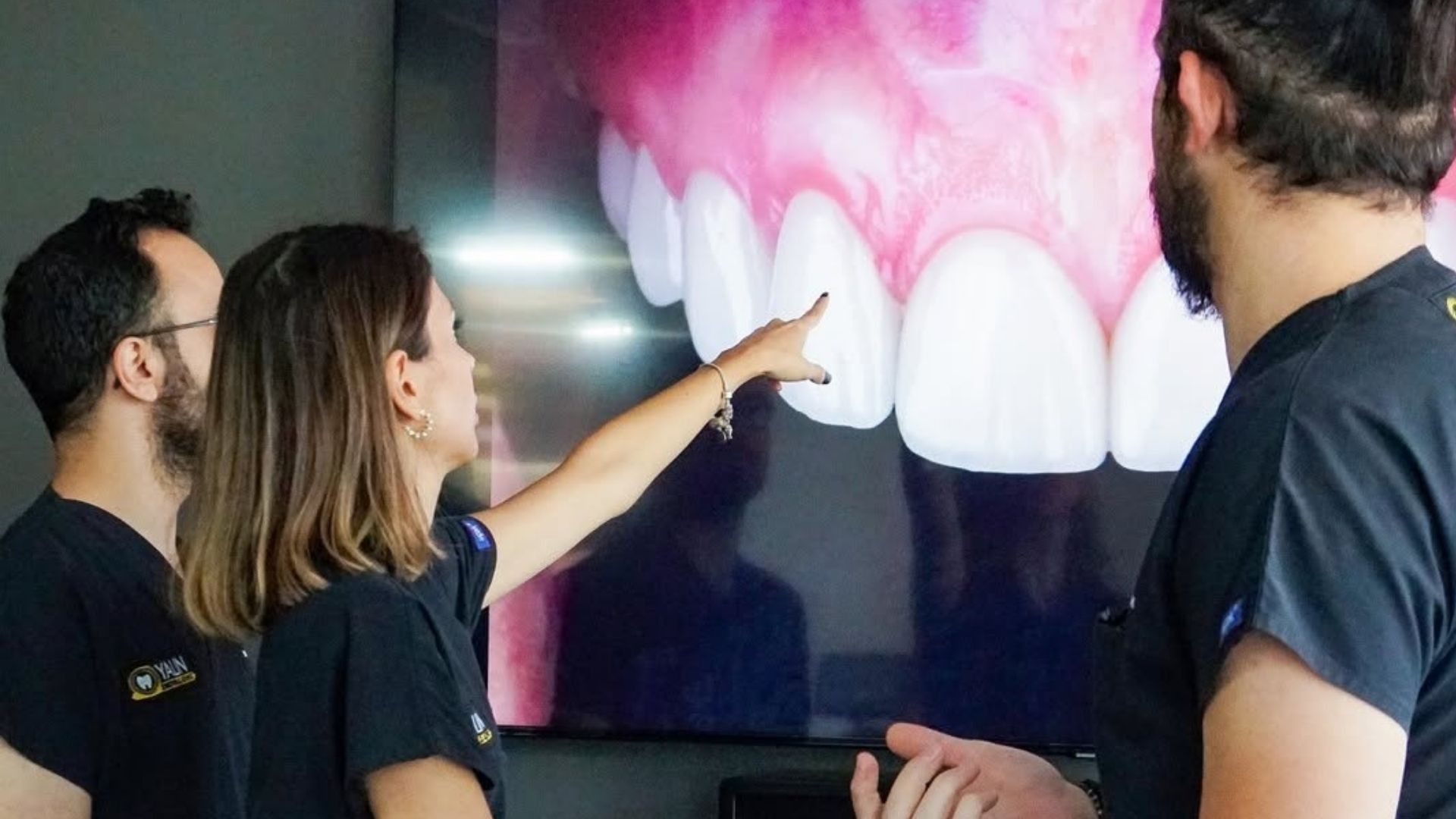
Dental implant pain – What it means and what to do?
Most of the time, dental implant pain is nothing to panic about; it’s just your body healing. But sometimes pain tells a bigger story. The key is knowing what’s normal and what needs a dentist’s eye.
Dental implant intense pain
Mild soreness is expected, but strong, sharp pain that doesn’t ease with painkillers isn’t normal. If chewing feels impossible or the pain keeps waking you up, don’t ignore it, your dentist should check it.
Signs of complication
Redness that spreads, swelling that grows instead of going down, or bleeding that won’t stop are warning signs. If you notice a bad taste, pus, or fever, these can mean infection. That’s your cue to call your dentist right away.
Signs of dental implant failure
In rare cases, the implant doesn’t bond with the bone. What would you notice? The implant feels loose, the gum around it looks inflamed, or the pain just won’t go away after weeks. These are signs it’s not healing as it should.
Relieving pain at home
For everyday soreness, simple steps work well: take the pain medicine your dentist recommends, use a cold compress on your cheek to calm swelling, and eat soft foods for a while. Rinse gently with salt water to keep the area fresh. Rest helps too; let your body do the healing.
What is the procedure of dental implant surgery?
Dental implant surgery is a treatment to replace a missing tooth. A small titanium screw is placed in the jawbone as a new root, and a crown is fixed on top to look and work like a real tooth.
Think of it like giving your smile a second chance. The dentist puts a little titanium screw, your new root, right into the jaw. Your bone slowly hugs it tight, like it belongs there.
Once it’s strong, a crown goes on top. That crown is the part everyone sees, and it looks just like a real tooth. End of story: gap gone, smile back.
When do you need dental implants?
|
Situation |
Why it matters |
|
Missing tooth |
Gap in smile |
|
Broken tooth |
Can’t be saved |
|
Tooth extraction |
Empty space left |
|
Gum disease loss |
Weak teeth gone |
|
Denture problems |
Slip, no comfort |
|
Bridge not wanted |
Saves healthy teeth |
|
Bone shrinking |
Implant keeps strong |
There are many little moments in life that point you toward an implant. Maybe you bit into something, and a tooth cracked beyond repair. Maybe gum disease slowly stole a tooth away. Occasionally it’s an accident, a fall, a ball to the face, or even just bad luck. Other times, the tooth had to be pulled because it was too far gone.
Then there are people who try dentures and get tired of them slipping like loose shoes. Or the ones who hate the idea of filing down two healthy teeth just to make a bridge. And don’t forget the hidden part: when a tooth is missing, the bone underneath starts shrinking, like a muscle that isn’t used.
So, implants step in when you want more than just a “cover-up”. They give you a solid root, a natural tooth on top, and the comfort of chewing, talking, and smiling without thinking twice. It’s for all those moments when you say, “I just want my tooth back, properly.”
What is involved in dental implant surgery?
Check-up first – The dentist looks at your mouth, takes X-rays, and plans the best spot for the implant.

Numb the area – A little anaesthetic so you feel calm and pain-free.
Small opening – The gum is gently opened to reach the jawbone.
Drill prep – A tiny space is made in the bone, just the right size.
Implant in place – The titanium screw (your new root) goes into that spot.
Close it up – The gum is stitched or covered so healing can begin.
Healing time – Your bone slowly “hugs” the implant. This can take a few months.
Connector piece – After healing, a small part called an abutment is attached.
Impression taken – The dentist makes a mould so your new crown fits perfectly.
Crown placed – A custom-made tooth is fixed on top. It looks and feels real.
Back to normal – You chew, smile, and live like the tooth was never missing.
Do dental implants hurt?
No, they don’t. Your dentist numbs the area, so you won’t feel pain during the surgery. You may only notice a bit of pressure or sound, nothing more, during the procedure.
After the implant, there can be slight soreness, like a small bruise. It doesn’t last long, and the painkillers your dentist gives you are enough.
So really, there's no need to be afraid; implants give you back your tooth and your smile without the pain you worry about.
How painful is surgery?
Honestly, not the way you fear. Your dentist makes the area numb, so there’s no sharp pain, just a bit of pressure or some sounds you’ll probably forget right after. Most people walk out saying, “Oh, that was it?”
Possible discomforts
Later on, yes, you might feel some soreness or swelling. Think of it like the ache you get after a tough workout or a small bruise. It’s there, but never unbearable. And with the painkillers your dentist gives, it’s usually no big deal.
Aftercare and healing
This part is simple: rest a little, take the meds, and keep the area clean. Avoid hard foods at first. Within days, you’ll feel a big difference, and as weeks pass, the implant bonds with your bone quietly in the background. Before you know it, you’re back to chewing, laughing, and smiling like nothing ever happened.
Dental implant aftercare
Here’s the “real-life” guide to looking after your new implant. 12 simple but golden rules:
Take it easy the first day – Rest up, and let your body focus on healing.
Don’t touch the area – No poking with your tongue or fingers, even if you’re curious.
Ice is your friend – A cold pack on your cheek calms swelling fast.
Soft foods only – Soups, yogurts, smoothies… Skip the crunchy stuff for now.
Skip the straw – Suction can mess with healing, so drink straight from the cup.
Say no to smoking – At least for a while; it slows healing big time.
Keep it clean, but gentle – Brush your other teeth as normal, but go easy around the implant.
Salt water rinse – A warm, gentle rinse keeps the spot fresh and bacteria away.
Take your meds – Painkillers or antibiotics from your dentist aren’t optional, they’re part of healing.
Watch for warning signs – Big swelling, constant pain, or bleeding? Call your dentist.
Don’t rush eating – Even when you feel better, give the implant time before chewing hard on it.
Show up to check-ups – Follow-ups are key; your dentist makes sure everything is bonding as it should.
How long is the dental implant recovery?
Recovery is usually 3 to 6 months.
The first week is the sensitive stage; you may feel swelling, mild pain, and need soft foods. Stitches start healing, and daily life gets easier by the end of the week.
In the following weeks, soreness fades, eating feels normal again, and you forget the implant is even there. But inside, the bone is still bonding with the screw.
By the final months, the implant is fully fused, strong, and ready for the crown. That’s when it feels like a natural tooth that was always yours.
Side effects of dental treatment

After implants, the most common thing you’ll notice is a bit of swelling and some soreness – nothing dramatic, more like an ache after a long workout. A small bruise on your cheek or gum can show up too, but it fades fast.
The rare stuff? Infection if the area isn’t kept clean, or the implant feeling loose if the bone doesn’t bond well. Very rarely, some tingling or numbness if a nerve gets irritated.
Most people, though, just deal with a few days of puffiness and mild ache and then move on with a brand-new tooth.
Frequently Asked Questions
Why does my dental implant hurt when I chew?
It usually hurts because the area is still healing and not fully settled yet. In the early weeks, your bone and gum are like, “Give me a minute; I’m still adjusting.” That’s why chewing can bring a little sting or pressure. If the pain feels sharp or keeps hanging around, that’s not just healing; that’s your cue to let your dentist check it.
Do dental implants hurt forever?
No, not at all. The ache is just a guest in the first days, then it packs up and leaves. Once healing is done, the implant feels so natural you’ll forget which tooth it even was.
Are dental implants safe?
Yes, they are safe when you’re in the right hands. The key is choosing a proper clinic and a dentist who’s certified and has done this treatment many times before. With the right expert, implants are not only safe but also one of the most reliable ways to get your smile back.
How to relieve pain from dental implant?
- Use prescribed painkillers – They control the ache quickly.
- Cold pack on cheek – Numbs the area and eases sharp pain.
- Warm salt rinse – Soothes the gum and reduces discomfort.
- Rest your jaw – Less talking and chewing keeps pain down.
- Eat soft foods – Avoid pressure that triggers pain.
- Sleep with head raised – Helps swelling and pain go down.
- Avoid hot drinks – Heat can make pain feel stronger.
- Call your dentist if severe – Strong pain means it needs checking.
What's the most painful part of a dental implant?
The sore part usually comes after the numbness wears off, with mild swelling and tenderness in the first few days, not the surgery itself.
Please contact us for more information.






